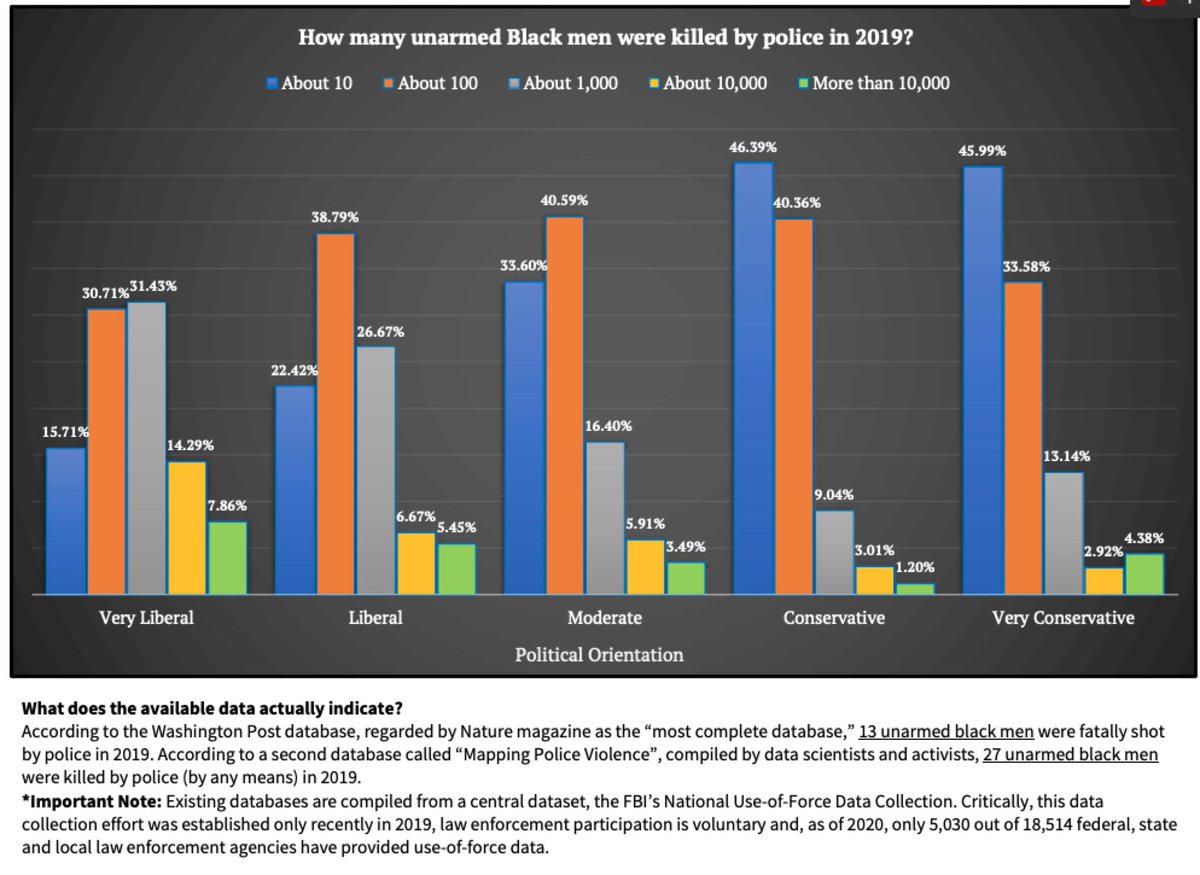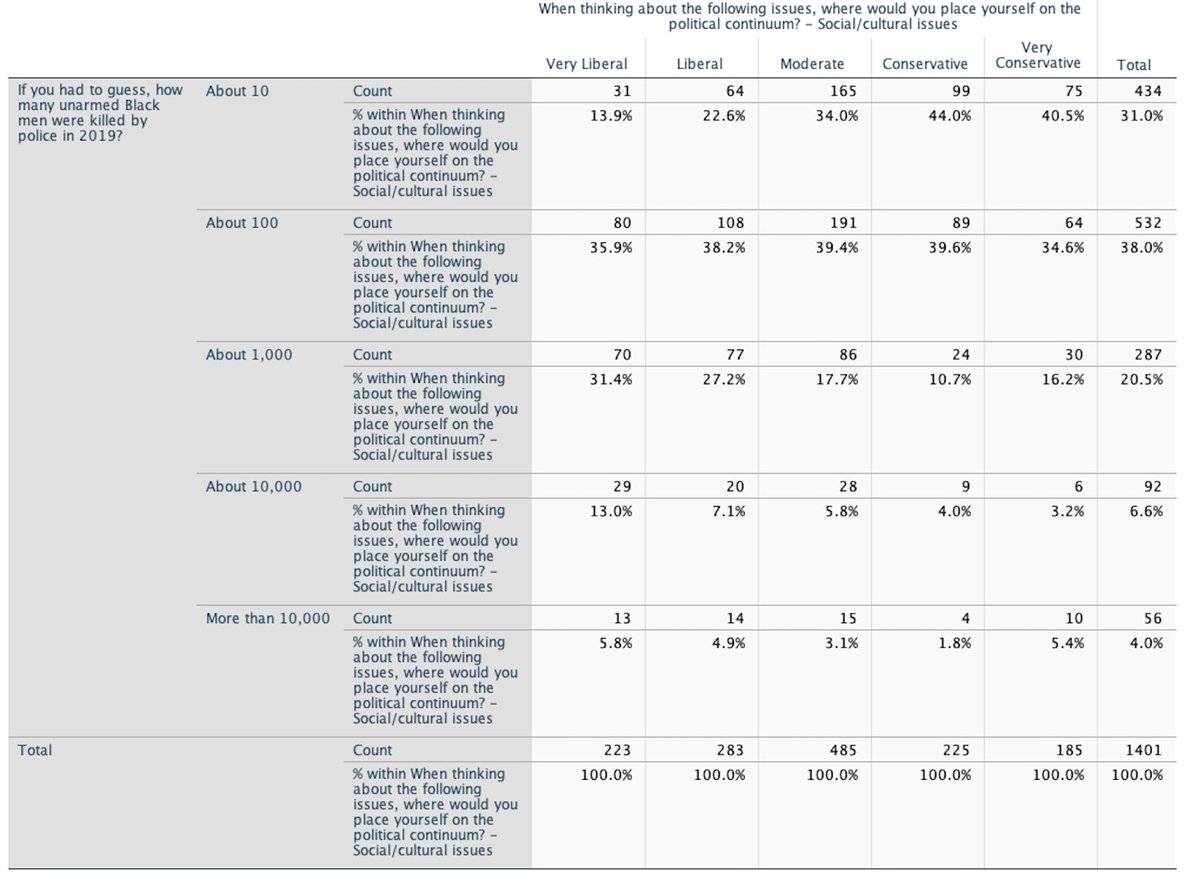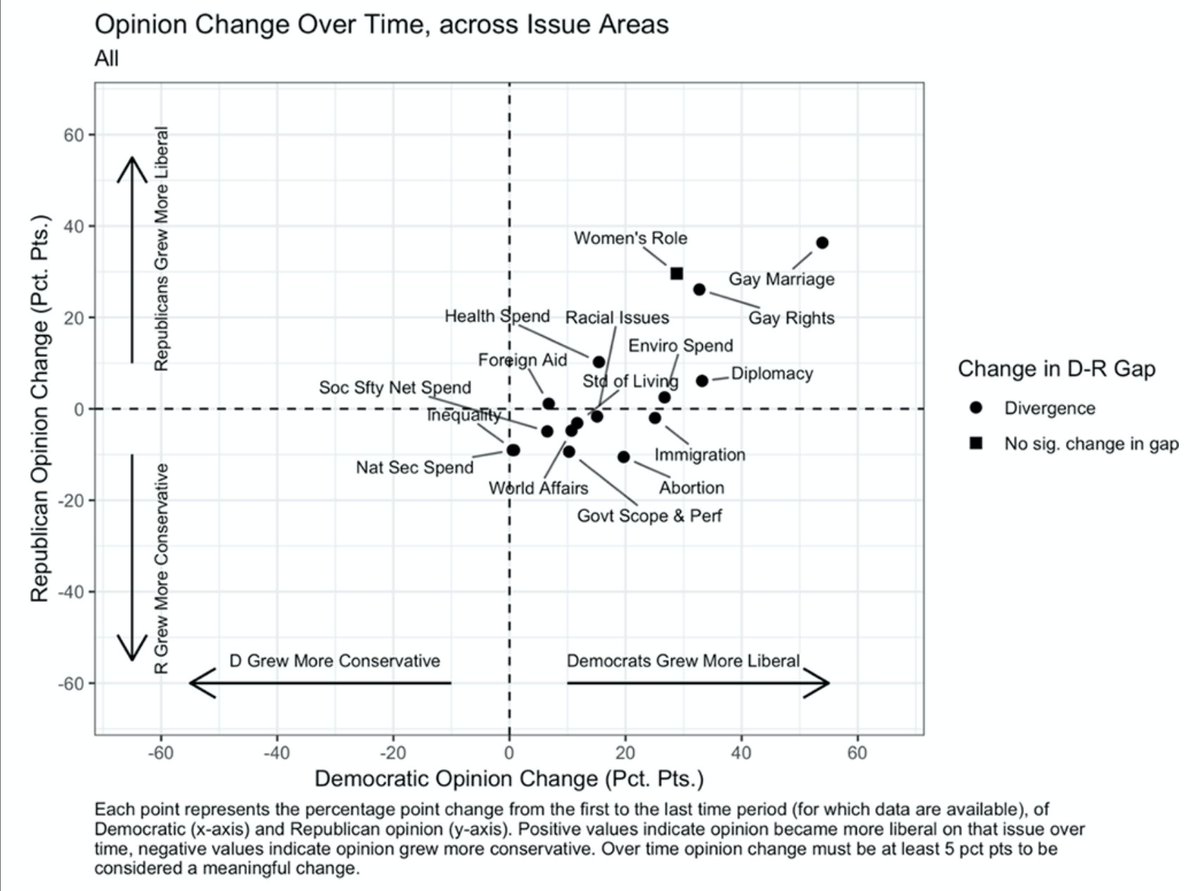
1/n A recent nationally representative survey commissioned by Skeptic Mag asked respondents to estimate the number of unarmed blacks killed by police in 2019. Overall, 44% of liberals guessed 1,000 or more as compared to 20% of conservatives (this calculation is based on the.. 

3/n According to the Mapping Police Violence database, the actual figure is 27.
4/n Furthermore, the average liberal respondent also thought that a clear majority of people killed by police in 2019 were black (in actuality, roughly a quarter were) 

5/n Link to full report skeptic.com/research-cente…
7/n Worth adding that this pattern of results is likely more general than specific to estimates of police homicides. For instance, in the study below, liberals significantly overestimated the number of black job resumes per callback
https://twitter.com/ZachG932/status/1186052682274004992?s=20
8/n Probably a good place to plug my article from the summer tabletmag.com/sections/news/…
• • •
Missing some Tweet in this thread? You can try to
force a refresh










